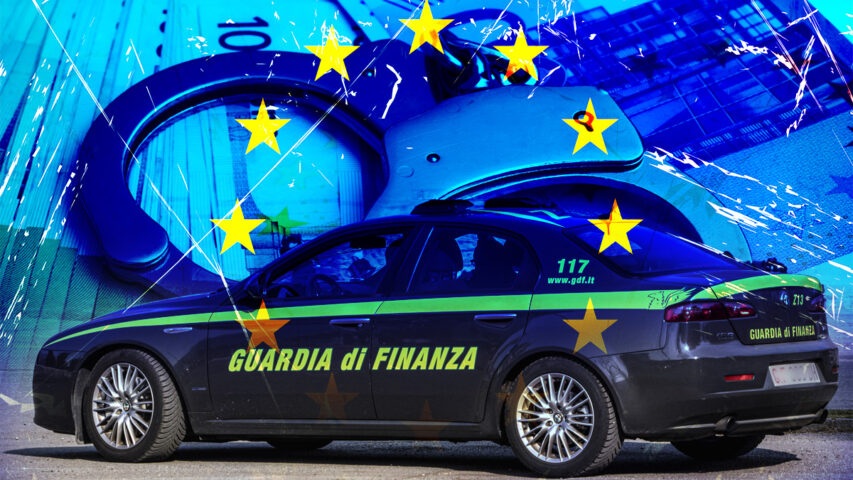- Have any questions? Contact us!
- info@dr-rath-foundation.org

People Who Take Paracetamol (Acetaminophen) Warned Even ‘Really Low’ Doses Can Damage Heart
April 18, 2024
World Health Organization Official Admits Vaccine Passports May Have Been a Scam
April 26, 2024Police Arrest 22 Suspects During Probe Into Major Fraud Linked to European Union COVID-19 Recovery Fund

Image: Adobe Stock / Dr. Rath Health Foundation
Authorities in Italy have carried out 22 arrests and seized assets totaling over 600 million euros ($638 million) as part of an inquiry into fraud linked to the European Union (EU) COVID-19 pandemic recovery fund. Items confiscated during the raids included villas, Rolex watches, Cartier jewelry, gold, cryptocurrencies, and high-end vehicles such as Lamborghinis and Porsches. With police investigations into the Qatargate scandal still ongoing, this latest embarrassment comes at a time when the European political bloc’s reputation for financial probity is already deeply damaged.
Three of the 22 arrests were made in Slovakia, two in Austria, with the remainder taking place in Italy. Simultaneous searches were also conducted in Romania. In carrying out the arrests, Italian law enforcement officials are said to have worked closely with staff from the European Public Prosecutor’s Office (EPPO). Notably, therefore, while the EPPO’s 2023 annual report revealed an overall total of 1,927 ongoing investigations involving 19.2 billion euros in suspected fraud, some believe this may simply be the tip of the iceberg.
In an additional new probe, the EPPO and authorities in Greece are also examining allegations of fraud related to the distribution of 2.5 billion euros in EU COVID-19 recovery funds to Greek companies. Here, the investigation focuses on suspicions that firms colluded to limit competition during public tender processes, potentially inflating fees. The allegations reflect growing concerns over a lack of transparency and fair competition in the EU’s distribution of recovery funds across its member states.
Ironically, it appears the alleged fraudsters may have found it easier to access the funds than most of the EU’s member states. According to reports, European governments have received less than a third of the bloc’s original 723 billion euro pandemic recovery pot and are pushing for the payouts to be speeded up. However, the European Court of Auditors, the EU’s auditing watchdog, believes that weak safeguards are increasing the scope for fraud. Even prior to the launching of the Italian and Greek investigations, the Court had openly warned of possible corruption in the spending of the funds.
In this respect it is now clear that crime syndicates have become skilled at pocketing money distributed by the EU for development and reconstruction. Given that cryptocurrencies, artificial intelligence (AI), and offshore servers were reportedly used to facilitate the Italian fraud, it seems the bloc’s stated ambition to become a world leader in the regulation of AI is already being undermined.
With its post-COVID-19 recovery fund rapidly turning into a full-scale political disaster, the EU is increasingly facing calls for transparency over what has happened to the money. Some observers worry that the bulk of it may never be recovered. Either way, the billions borrowed to create the fund will eventually have to be repaid, which means that the ultimate victims will likely be European taxpayers. Already squeezed by the ongoing cost-of-living crisis, and with elections to the European Parliament due to be held between 6-9 June, voters may well decide to vent their anger at the ballot box.



